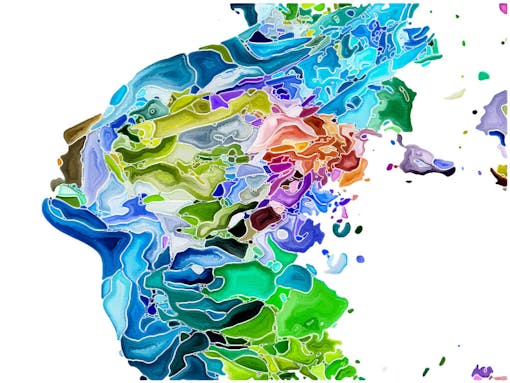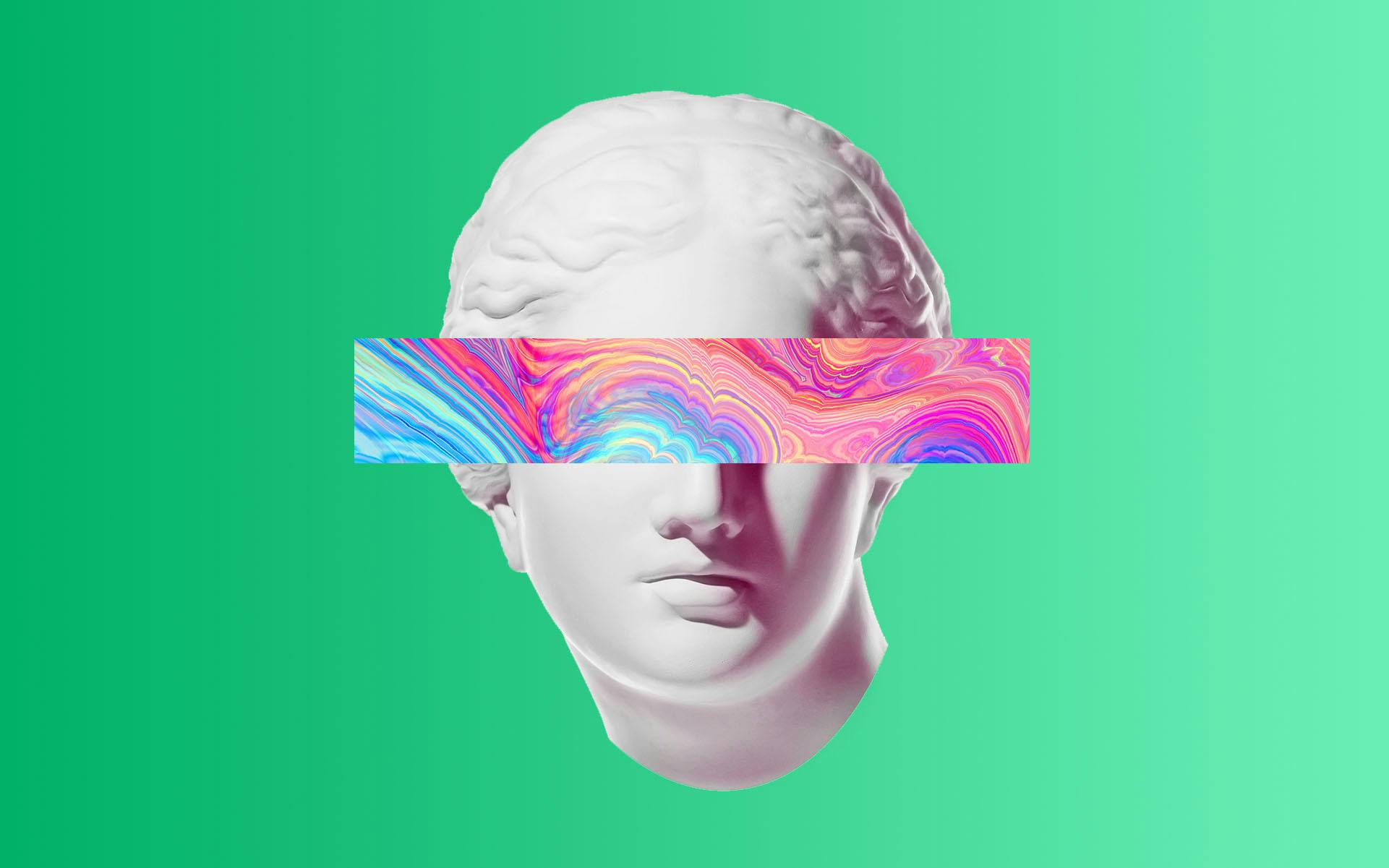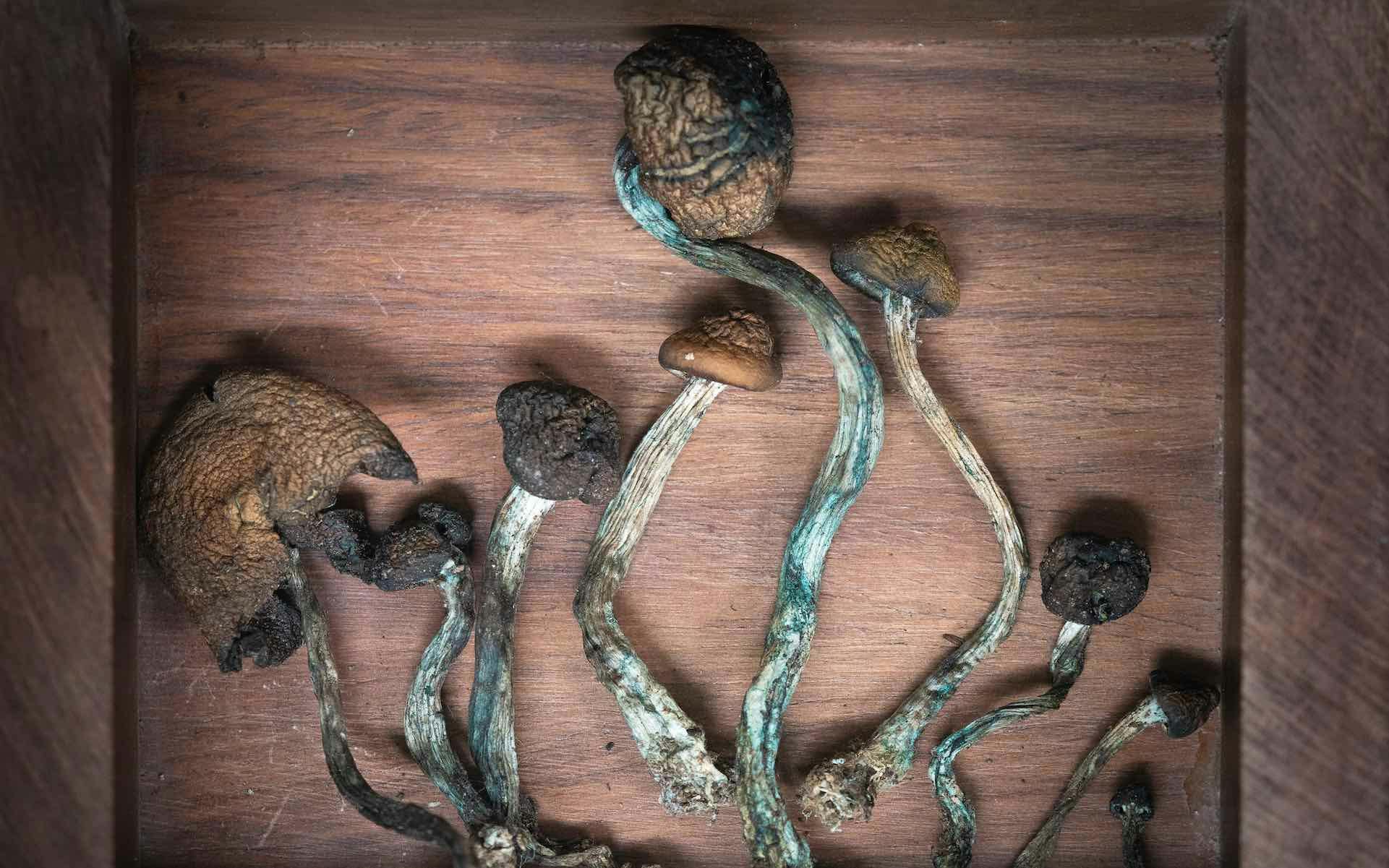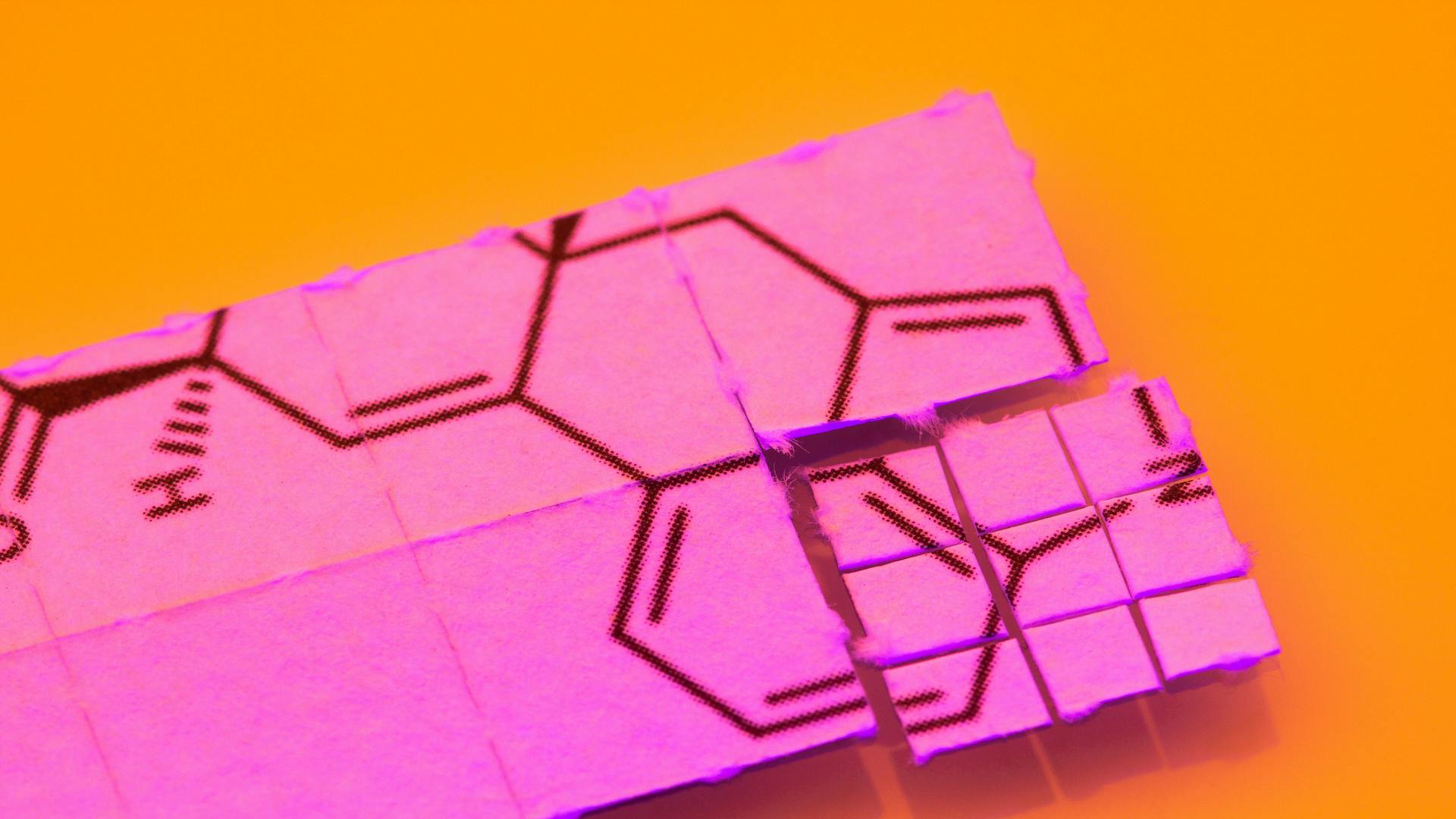Written by Emma Stone

Imagine forgetting everything: your name, your dreams and desires, fears and failures, political leanings. Who would you be without these measures of identity—what would remain?
As much as a healthy sense of self-identity as an individual can feel empowering, an overly rigid sense of self can also be crippling, limiting life experiences. Unhealthy thoughts and behavior patterns, addictions, and mental illnesses, such as depression and PTSD, have been linked to overactivity in regions of the brain connected to the ego.
The idea of losing one’s sense of self can, understandably, feel terrifying. But there’s research to suggest that part of the therapeutic promise of psychedelics may lie in their ability to dissolve the ego temporarily, allowing the consumer to experience the world through fresh eyes and get a new perspective on life.
What is the ego?
In Latin, “ego” means “I.” In the simplest terms, our ego comprises what we know, what we have experienced, and who we believe ourselves to be. The word “ego” is often associated with the work of Sigmund Freud, who founded modern psychiatry over a century ago.
“Freud described that the ego is part of the organized personality structure of the individual,” said Dr. Rakesh Jetly, Chief Medical Officer at Mydecine Innovations, a life sciences company that works with mushroom medicine. “The ego is more than our sense of self, but rather, includes functions like control, planning, intellectual functioning, awareness, reality testing, judgment, and the like.”
The ego is strongly involved in processes or reactions focusing on “I,” “me,” or “mine.” “As such, it makes sense that the traditional psychedelics that cause perceptual changes will alter the ego, and one’s sense of self and space,” said Jetly.
What is the concept of ego death, and how does it feel?
Part of the power of psychedelics is their ability to affect the mind and body in ways that few other substances or experiences can. However, the sheer depth of a psychedelic experience often leaves consumers struggling to describe it and coming up short. Terms that are often used, such as “ego death,” can sound obscure to those who haven’t had the experience, so it’s useful to unpack what they really mean.
“When one rids themselves of self, then one dissolves into the universe and finds nirvana.” — Dr. Rakesh Jetly, Mydecine Innovations
Ego death, also called ego loss, ego dissolution, or ego disintegration, is a common experience in a psychedelic journey. Ego death can be thought of by imagining the ego as a pool of water enclosed in a container; psychedelics can temporarily dissolve the container, blurring the self—the water inside the container—with what is outside. When the boundaries of the ego are disrupted, consumers describe the experience as a dissolution of self, or sometimes death.
Jetly pointed out that concepts from Eastern religions can be helpful in making sense of ego loss. “Traditional teachings of Buddhism, and to some extent, Hinduism, speak of reality being ‘the illusion of self,’” said Jetly. “When one rids themselves of self, then one dissolves into the universe and finds nirvana.”
Shop highly rated dispensaries near you
Showing you dispensaries nearMeditation and yoga are practices often used to detach from and diminish the self and enhance well-being. Psychedelics are another tool for achieving ego dissolution and feeling more connected to others and the surrounding world.
Experiences of ego death
For some, the temporary loss of ego can lead to a feeling of expansion and boundlessness. Many feel a sense of unity with others or the wider planet, or experience a profound connection to nature and the cosmos.
On the other hand, ego death can also evoke panic and anxiety. Some even liken the experience to going insane or dying.
The way an individual reacts to the loss of ego depends on their mindset and setting, which influence whether ego dissolution is experienced as positive and embraced, or feared and resisted.
For one psychedelic consumer, ego death can blend both fear and ecstasy:
I was ‘crushed’ out of existence. At the beginning of the experience an amorphous gray ‘cloud’ was slowly descending toward my reclining body, and I somehow knew that when it reached me, I would be crushed. Indeed I was. It was a strong ego death experience, but once the ego was gone, it was very ecstatic. In my experience, the process of ego loss can sometimes be difficult, but it seems it’s the ego that experiences fear, and once the ego is gone, there is no fear.
For another, ego loss was experienced in the body:
I feel as though my body is melting away; I have no boundaries—scoop me up off the floor and tie me up in a sack to give me some limits… I feel like I’ve blended with the universe.
How does the brain experience ego loss?
The brain system most implicated in the ego and self-processing is the default mode network, or DMN. The DMN doesn’t occupy a fixed location in the brain, instead, it is comprised of different regions that act as connector hubs. Communication between these hubs enables self-oriented functions like introspection and autobiographical memory.
Psychedelics can reduce the activity of the default mode network, promoting communication and integration across different regions of the brain.
“This network describes an interconnected group of brain regions that are likely responsible for functions such as everyday consciousness, self-reflection, self-criticism, and to some extent, this network gives us a continuous sense of self,” said Jetly. “Naturally, the DMN is most active when an individual is focused inwards, rather than outwards.”
Psychedelics can reduce the activity of the default mode network, according to Jetly. By inhibiting the DMN, psychedelics can promote communication and integration across different regions of the brain.
The increased connectivity between high-level areas of the brain such as thinking and associating, and low-level areas such as sensory perception, can help to blow awareness wide open and diminish the idea of the self as distinctive from others, or the environment at large.
How can ego loss be a good thing?
There’s an old spiritual saying that to learn how to truly live, you must die before you die. As daunting as that may seem, a temporary loss of the ego may help to unlock a new, beneficial understanding that can then be integrated into everyday life.
Abnormalities related to the self or ego have been described in diverse mental health conditions. Depression and anxiety, for example, are characterized by an increase in self-focus and an inability to stop obsessive, self-referential thinking patterns.
Other mental illnesses, such as schizophrenia, also show patterns of abnormal default mode network activity. The ability of psychedelics to suppress the default mode network has been linked to positive therapeutic repercussions for individuals with mental illnesses.
Jetly and his team are undertaking clinical trials with psychedelic-assisted therapy to investigate how psychedelics might help those living with PTSD, addictions, and other mental health disorders.
“Imagine the self-image a veteran may have of himself/herself after combat,” said Jetly. “He or she may be filled with guilt, shame, or self-loathing based on surviving war while colleagues have been killed. The psychedelic experience may quiet this noisy, negative sense of self or ego, allowing psychotherapy to introduce alternate explanations and beliefs.”
There’s also evidence that those who do not have mental illnesses may benefit from a psychedelic ego check too. For example, in a 2016 study of 691 participants, subjects reported that their experiences with psychedelic drugs had left a positive and lasting impact on their well-being which positively correlated with the degree of ego dissolution they experienced.
Can ego loss be dangerous?
While psychedelic-induced ego loss can be unpleasant, there’s no hard data at present to support that it is dangerous. In one large 2015 survey, researchers found that psychedelic consumers were not at an increased risk of developing mental-health problems, including schizophrenia, psychosis, depression, anxiety disorders or suicide attempts.
It’s also vital to note that scary doesn’t necessarily equate to dangerous. Many researchers and members of the psychedelic community agree that challenging trips can still offer valuable learning experiences.
A large majority (84%) of respondents in a 2016 survey endorsed that they benefited from a challenging trip, even though it was one of the most difficult experiences of their life. When it comes to the experience of ego loss, if the consumer is willing and able to integrate the lessons, a challenging trip can hold powerful therapeutic benefits.
Jetly concurs and emphasizes the need of psychotherapy in addition to psychedelics: “I feel in the controlled and safe environment of a clinical setting, a well-prepared patient and experienced therapist can work through the fear.”
However, ego loss and its potential therapeutic benefits are still not fully understood and more research needs to be done to get a fuller picture.
Read more of Leafly’s guide to psychedelics
- Psychedelic medicine: How psychedelics can help
- How do psychedelics work?
- The history of psychedelics
- Which psychedelic drugs are legal?
- Is cannabis a psychedelic?
- How ego death can improve mental health
- Types of psychedelics
- MDMA
- LSD
- Mushrooms
- DMT
- Ketamine
- How to dose psychedelic mushrooms
- Magic mushrooms and acid: What are the differences?
- Smoking weed with psychedelic mushrooms
By providing us with your email address, you agree to Leafly's Terms of Service and Privacy Policy.



